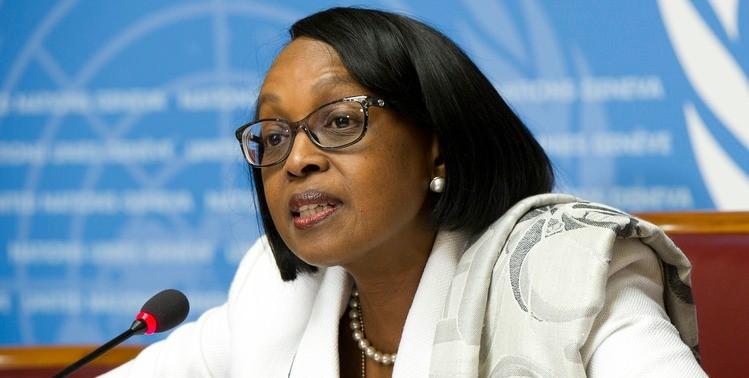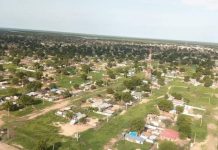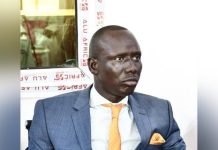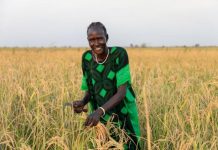Africa-Press – South-Sudan. The World Health Organisation (WHO) has said cases of the COVID-19 pandemic in Africa have subsided after six weeks of a notable surge. The report, released on Thursday, said the surge was the shortest in the history of the emergence of COVID-19, which resulted in over 10.2 million confirmed cases. Last week’s reports revealed that there was less infection than in previous weeks.
“Recorded cases of infection show that the weekly number plateaued in the seven days leading up to January 9 from the previous week, according to the report.
The WHO Regional Director for Africa, Matshidiso Moeti, said, “Early indications suggest that Africa’s fourth wave has been steep and brief, but no less destabilising.”
The Omicron variant has been reported in 30 African countries, while globally, the number stands at least 142 countries, with Cabo Verde and Nigeria being dominated by the variant and other parts of the world experiencing it. 42 African countries have so far reported the Delta variant.
WHO said the Omicron overtook the initially dominant Delta variant within two weeks. This was worse compared to the pace of Delta when it surpassed the Beta variant.
Although Southern Africa had the highest reported infections, WHO reported a 14 per cent decline in confirmed cases, while South Africa recorded a nine per cent decline in last week’s reports.
East and Central Africa are said to have seen a decrease in reported cases, while North Africa saw a 121 per cent increase in infections last week, compared to the previous week.
“The crucial pandemic countermeasure badly needed in Africa still stands, and that is rapidly and significantly increasing COVID-19 vaccinations,” said the senior WHO official. “The next wave might not be so forgiving.”
Efforts
WHO has pledged its support for African countries through training in bioinformatics and specimen handling, among other areas, to boost “genomic sequencing to identify new mutations” as well as procuring and delivering “critical laboratory equipment and supplies.”
With the know-how and the tools, and with a concerted push, we can certainly tip the balance against the pandemic,” said Dr Moeti. With about 10 per cent of the population vaccinated across Africa, the WHO noted that vaccine supplies to Africa have shown drastic improvement. The organisation vows to render support to ensure a broader spectrum of dosing delivery.
“This year should mark a turning point in Africa’s COVID-19 vaccination drive,” said Dr Moeti.
“With vast swaths of the population still unvaccinated, our chances of limiting the emergence and impact of deadly variants are frighteningly slim,” she added.
Mandatory vaccination
COVID-19 vaccination certificates have become an important factor in East African countries. The East African Community this week said resistance to vaccination was a great setback to intra-EAC trade.
The Secretary-General of the regional bloc, Peter Mathuki, stressed the need for vaccination to be prioritised to jumpstart trade and recover the economy.
The community has also approved the use of EACPass, which allows vaccination certificates and negative COVID-19 test results to be accessed across all the EAC partner states’ borders. The bloc has already finished the installation of accredited laboratories for carrying out tests in each of its partner states.
National response
Last December, the government of South Sudan imposed mandatory vaccination and the use of vaccination certificates even in schools, following an increase in the infection rate across the country.
The order, which was announced by the Vice President for Service Cluster, Hussein Abdelbagi, barred students from accessing school facilities without vaccination certificates.
This development came after the Ministry of Health reported 555 cases in December, thus, lifting the infection cases in the country to over 30,000 and 133 deaths since the emergence of the pandemic.
The World Health Organisation (WHO) has been strategic in the distribution of vaccines to over 224 facilities in the 10 states and three administrative areas.
The ministry of health says 66 of 80 counties in the country have received the vaccines, while 14 counties affected by floods have been rid of vaccines due to poor roads.
The WHO Coordinator in South Sudan, Dr Brendan Dineen, said about 60 per cent of health workers had been fully vaccinated, which she said was better than in other countries. She said 139,364 people had been vaccinated, 33,006 with two doses of the AstraZeneca vaccine, while 106,358 had received a single shot of the J & J vaccine. The ministry planned to give the second dose of the AstraZeneca vaccine to 51,833 people who received the first dose.
For More News And Analysis About South-Sudan Follow Africa-Press






